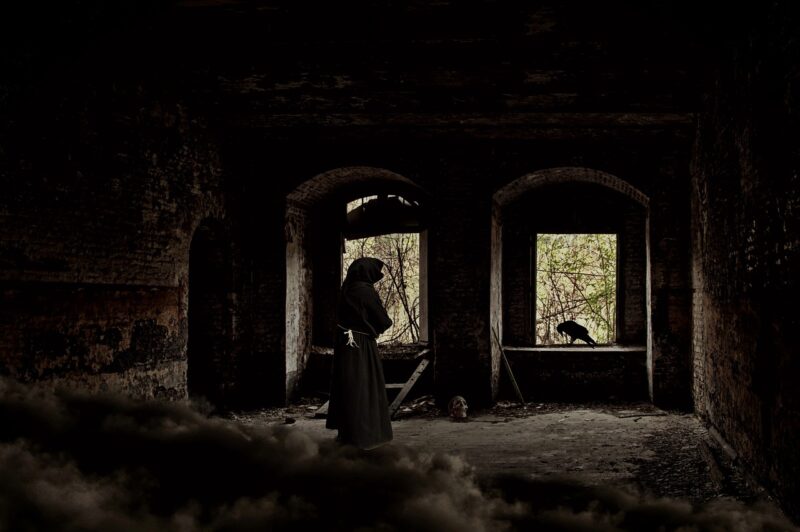
Ghost stories have haunted humanity for centuries, weaving their eerie threads through cultures and communities. But what is it about these tales that beckon us to linger around flickering candles, eyes wide with fear and fascination? In this article, we’ll explore the psychological, cultural, and social dimensions that explain why ghost stories hold such a significant place in human history.
1. The Origins of Ghost Stories
The tradition of sharing ghost stories can be traced back to ancient civilizations. The earliest known ghost stories can be found in Sumerian texts and ancient Greek literature, showing that humans have always grappled with mortality and the unknown.
In many cultures, ghost stories served as cautionary tales, meant to instill moral values and explain the mysteries of life and death. For example, in ancient Rome, the philosopher Pliny the Younger wrote about ghosts in his letters, illustrating how tales of the supernatural were embedded in the fabric of Roman life.
These ancient stories reveal something fundamental about human nature: our desire to understand what lies beyond the grave.
2. The Psychological Appeal of Fear
Research shows that humans are wired to respond to fear, and this response can be traced back to our evolutionary ancestors. Facing fears helped early humans to survive by recognizing threats in their environment. Therefore, ghost stories tap into our primal instinct to confront fear.
The rush of adrenaline that comes from listening to a ghost story often provides a safe environment in which we can explore our fears without any real danger. This phenomenon is also referred to as “benign masochism,” where we seek out fear-inducing experiences for pleasure.
Additionally, ghost stories often allow us to grapple with the universal theme of mortality. They provoke thoughts about what might come after death, bringing us face-to-face with our own eventual demise in a manner that is both thrilling and enlightening.
3. Cultural Significance and Social Bonding
Ghost stories are often reflective of the cultural beliefs and societal values of the time. They can reveal much about the fears and concerns of a society. For example, during periods of social unrest or upheaval, ghost stories may reflect collective anxiety, serving as a form of societal catharsis.
Social Bonding Through Storytelling
Gathering around a fire to tell ghost stories is a deeply communal activity. It strengthens bonds between individuals, whether among friends, family, or communities. The shared experience of fear and suspense not only entertains but also fosters connections, helping to reinforce social cohesion.
4. The Role of Ghosts in Moral Education
Many ghost stories serve important moral lessons. These tales often feature retribution against wrongdoers or showcase how unresolved issues in life can lead to a restless spirit. For instance, the story of the Headless Horseman from Washington Irving’s “The Legend of Sleepy Hollow” serves as a reminder of the consequences of one’s actions and the importance of facing one’s fears and the past.
Tellers of ghost stories often weave morals into these narratives, emphasizing how one’s actions may extend beyond death. Thus, ghost stories act as cautionary tales that guide behavior and instill ethical considerations in audiences.
5. Modern Ghost Stories and Media Influence
The rise of technology and media has transformed how ghost stories are told and consumed. Movies, TV shows, podcasts, and social media have made ghosts more accessible to the general populace, propagating a new interest in supernatural tales. The popularity of horror films and paranormal documentaries speaks to society’s continued fascination with the unknown.
In a world increasingly dominated by rational science, ghost stories provide an alternative lens through which to view reality, allowing audiences to indulge in the allure of the supernatural. This intersection of modernity and tradition allows ghost stories to adapt and thrive.
6. Conclusion: The Unyielding Allure of Ghost Stories
Ghost stories encapsulate a unique blend of psychology, culture, and morality that appeals to our most primal instincts. Whether as a method of explaining the unexplainable, a way to confront our fears, or a means of social bonding, the allure of ghost stories is undeniable.
As long as there are humans to tell them, ghost stories will continue to haunt our firesides. In this way, they become a living tapestry of our desires, fears, and reflections on life and death. The next time you find yourself gathering around with friends, consider sharing a ghost story. You may just find that the shared shiver of fear brings you closer together than ever before.







